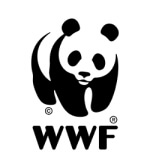WWF-Philippines reaffirms its dedication to sustainable fishing practices through a comprehensive Business Continuity Management training held in Bacacay, Albay.
The 3-day event, which took place from July 22 to 24, was conducted in partnership with the Asia Society for Social Improvement and Sustainable Transformation (ASSIST) and welcomed fisher-leaders from 13 Tuna Fishers Associations (TFAs) across the Bicol region.
The training commenced with a focus on raising awareness about disaster risks and the basics of business continuity. This initial day provided participants with a foundational understanding of how to prepare for and respond to potential disruptions, laying the groundwork for the subsequent sessions.
On the second day, the emphasis shifted to enhancing organizational insights. Attendees engaged in effective scenario planning and developed continuity strategies tailored to their specific needs. This hands-on approach allowed the fishers to apply their theoretical knowledge to practical situations, equipping them with the skills to formulate comprehensive strategies for ensuring their organizations’ resilience.
The final day was dedicated to presenting the continuity management plans developed by the participants. Notable plans were presented by the TFAs of San Jose, Rancho-Casuna Tigaon, and Rapu-Rapu, highlighting practical solutions devised during the initial days of training.
This capacity-building activity aimed to empower TFAs with the essential knowledge and tools to boost their operational sustainability, adaptability, and resilience. It covered a broad range of risks and challenges, including climate and environmental factors, as well as operational and technological issues, financial and market uncertainties, and legal and compliance concerns.
Field Operations Manager Marietta Calacal noted, “This is to protect their members and the association itself, ensuring they won’t be affected or forced to cease operations when faced with disasters.” She emphasized that the training’s insights and skills are crucial for maintaining operational continuity, even beyond the conclusion of the Sustainable Tuna program in December.
Site Manager for Lagonoy Gulf, Leah Benosa, expressed hope that the training would inspire the fisher-leaders to continue their involvement with their TFAs even after the project ends. “I hope they realize that being part of their TFAs should continue beyond this project. I also hope they understand that their members depend on them as leaders.”
The collaborative efforts and the actionable plans developed during the event underscored the potential for these TFAs to significantly enhance their operational resilience. This training not only equipped them with vital strategies to navigate various risks but also fostered a renewed commitment to sustainable practices and community leadership.




